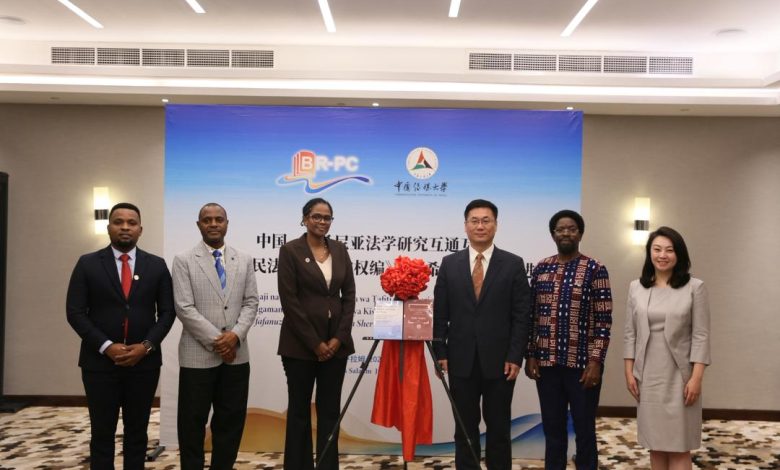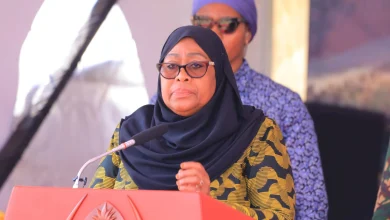Kiswahili hailed as legal bridge between Tanzania and China

DAR ES SALAAM: THE Kiswahili language has officially been recognized as a key tool in enhancing legal and cultural understanding between Tanzania and China, following the launch of the first-ever translation of Chinese legal texts into Swahili.
The launch took place in Dar es Salaam today, July 17, 2025, during a symposium that brought together translation experts, publishers, and scholars from both countries.
Leaders from various institutions praised the initiative, describing it as a new chapter of fruitful cooperation for the citizens of both nations.
Opening opportunities for Tanzanians, the Director of the Institute of Kiswahili Studies, Professor Aldin Mutembei, said that for the first time, Tanzanians will be able to understand Chinese laws in a language they are familiar with. “This is a major milestone as it simplifies legal communication between our countries,” he said.

Kulwa Kindija, a representative from the National Kiswahili Council (BAKITA), emphasized that the initiative aligns with government efforts to strengthen the use of Kiswahili in the legal sector. He noted that new legal terminologies are being developed to ensure accurate and effective translation of legal materials.
Reducing misunderstanding and strengthening mutual understanding on her part, Husna Sharif from the Tanzania-China Friendship Development Association, said the translated legal texts will help reduce minor conflicts stemming from miscommunication, especially in trade and immigration matters. “With a shared language, both parties can clearly understand their legal rights and obligations,” she explained.
Speaking at the symposium, Professor Ao Manyun from the Communication University of China noted that Kiswahili is an international language that has been taught in China for over 65 years, with more than 540 graduates to date.

Prof Ao explained that translating legal documents into Kiswahili is a critical step toward deepening cultural and legal relations between the two nations. “I choose to translate legal books because I wish it would help Chinese and Tanzania people Living in each other country avoid misunderstanding and cooperate better in many fields.” she said.
ALSO READ: Govt reaffirms commitment to invest in Kiswahili
She added that translations of laws, such as property rights, help foreign nationals understand how to legally own assets or engage in joint projects under local regulations.
This initiative has been hailed as a sign of a deep and strategic partnership between Tanzania and China—one built not only on trade, but also on mutual legal and cultural understanding, with Swahili serving as the bridge for communication.





